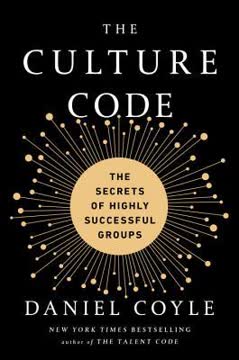つの重要なポイント
1. 「運命の15」面接質問をマスターして、どんな面接でも成功を収める
これらの15の質問に対して魅力的な回答を考え出し、その場でそれぞれを識別できるようになれば、面接が得意になるでしょう。
「運命の15」は重要です。 これらの質問はほぼすべての面接の基礎を形成し、「自己紹介をしてください」「あなたの強みと弱みは何ですか?」「なぜこの会社で働きたいのですか?」といった定番の質問が含まれます。これらの基本的な質問に対してよく考えられた回答を準備することで、さまざまな面接シナリオに対応できるようになります。
回答をカスタマイズする。 各質問に対する一般的な枠組みを持つことは重要ですが、特定の仕事や会社に合わせて回答をカスタマイズしましょう。組織の価値観、文化、ニーズを調査し、それに応じて回答を調整します。
練習するが、機械的にならないように。 自信を持って答えられるように練習しますが、ロボットのように聞こえないようにします。自然で会話的なトーンを目指し、誠実さと熱意を伝えます。
2. 仕事の要件に合った魅力的な個人の物語を準備する
面接で最も良い自分を見せることができるのは、自分自身です。
自分の物語を作る。 関連する経験、スキル、動機を強調する簡潔で魅力的な物語を作りましょう。この物語は、なぜあなたがそのポジションに最適な候補者であるか、そしてあなたの背景がどのようにこの機会に備えてきたかを説明するものです。
関連性に焦点を当てる。 あなたの人生全体の物語が興味深いかもしれませんが、現在の仕事に直接関連する側面を優先します。役割に適していることを示す経験や成果を強調します。
誠実であること。 物語をカスタマイズする際には、誠実さを保ちます。真の熱意と情熱は、完璧に磨かれたが誠実さに欠ける回答よりも魅力的です。
3. 弱点を話す際に自己認識と成長マインドセットを示す
少しの困難を認めるが、「後悔」という言葉は使わないようにしましょう。ポジティブなことに焦点を当て、それをもっとやりたかったと述べます。
実際の弱点を認める。 改善が必要な本当の分野を選びますが、その仕事から失格になるような重大な欠点は避けます。真の弱点を話すことは、自己認識と正直さを示します。
成長と学びを強調する。 弱点を特定した後、すぐにそれに対処するために取ったステップについて話します。これにより、成長マインドセットと自己改善への積極的なアプローチが示されます。
具体的な例を提供する。 弱点を克服するために取り組んだ具体的な事例や、それを強みに変えた事例を提供します。これにより、自己評価の信憑性が増し、個人の成長へのコミットメントが示されます。
4. 具体的な例を通じて問題解決能力とイニシアティブを示す
ストレスの多い状況やイライラする状況を建設的に乗り越えた例を提供します。
STARメソッドを使用する。 経験について尋ねられたときは、状況、タスク、行動、結果のフレームワークを使用して回答を構成します。これにより、問題解決プロセスの全体像を提供できます。
イニシアティブを強調する。 問題を特定し、促されることなく行動を起こす能力を示す例を選びます。これにより、積極性とリーダーシップの可能性が示されます。
結果を定量化する。 可能な限り、行動の結果として得られた具体的な指標や成果を含めます。これにより、影響力と効果の具体的な証拠が追加されます。
5. 企業に共鳴する形でキャリア目標と動機を述べる
雇用主は、あなたが慎重に考えた理由でその会社で働きたいと思っていることを望んでいます。したがって、キャリアの動機について話すときは、仕事から仕事への合理的な進行を強調し、この最新の会社がその中にどのように適合するかを示します。
目標を会社と一致させる。 会社の使命、価値観、将来の計画を調査します。あなたのキャリアの抱負が組織の目標とどのように一致するかを明確に述べます。
長期的な関心を示す。 現在の役割に対する熱意を示しながら、会社内でどのように成長していきたいかも示します。これにより、コミットメントと野心が示されます。
動機について具体的に述べる。 「キャリアの成長」といった一般的な理由ではなく、役割や会社の特定の側面に焦点を当てます。これにより、事前に調査を行い、そのポジションに対する真の関心があることが示されます。
6. 給与期待や退職理由に関する難しい質問に対処する
雇用主にとって、仕事は解決すべき問題です。他の懸念事項は二次的なものです。
給与の話。 給与期待について尋ねられた場合、可能であれば面接プロセスの後半までその質問を避けます。強く求められた場合は、地域の同様の役割に基づいた範囲を提供します。
退職理由。 現在または以前の仕事の否定的な側面ではなく、新しい機会を求める前向きな動機に焦点を当てます。何を離れるのかではなく、何に向かっているのかを強調します。
ギャップや解雇の対処。 雇用のギャップや解雇がある場合は、正直に簡潔に説明します。その経験から学んだことと、それがどのようにしてあなたを強い候補者にしたかに焦点を当てます。
7. カーブボールや創造性に関する質問に冷静に対処する戦略を立てる
会社がチームメンバーにユーモアのセンスを重視している場合、これもその判断材料になるかもしれません。
冷静さを保つ。 面接官は、特定の回答よりも、予期しない状況に対処する能力や思考プロセスに興味を持っていることが多いです。
考えを声に出す。 難しい質問に取り組む際には、考えを声に出して説明します。これにより、面接官はあなたの問題解決アプローチを理解できます。
ユーモアを適度に使う。 適切であれば、少しのユーモアが緊張を和らげ、あなたの個性を示すのに役立ちます。ただし、プロフェッショナルであり、誰かを傷つけないように注意します。
8. 思慮深い質問をして、良い印象を残す
質疑応答のフェーズは、面接官に強く長く印象を残すためのユニークな機会です。
事前に準備する。 役割、会社、チームについての5〜6の思慮深い質問のリストを作成します。これにより、真の関心と準備が示されます。
以前の議論にリンクする。 可能であれば、面接の早い段階でカバーされたトピックに質問を関連付けます。これにより、積極的なリスニングと関与が示されます。
不適切なトピックを避ける。 この段階では、給与、福利厚生、休暇についての質問は避けます。役割と会社への貢献に焦点を当てます。
最終更新日:
FAQ
What's Why You?: 101 Interview Questions You'll Never Fear Again about?
- Interview Focus: The book is a comprehensive guide to mastering job interviews, emphasizing the importance of preparation and understanding the interview process.
- 101 Questions: It covers 101 common interview questions, providing strategies for answering them effectively and authentically.
- Mindset and Self-Awareness: Author James Reed highlights the significance of mindset and self-awareness in interviews, suggesting that a positive approach can enhance success.
Why should I read Why You?: 101 Interview Questions You'll Never Fear Again?
- Expert Insights: Written by recruitment specialist James Reed, the book offers valuable insights into what employers seek in candidates.
- Practical Advice: It provides actionable tips and techniques for answering interview questions, making it a useful resource for job seekers at any level.
- Confidence Boost: By preparing with this book, readers can reduce anxiety and approach interviews with greater confidence and clarity.
What are the key takeaways of Why You?: 101 Interview Questions You'll Never Fear Again?
- Authenticity Matters: Being genuine in interviews resonates with employers more than rehearsed responses.
- Understand Questions: Recognizing the underlying themes of interview questions can help tailor effective responses.
- Mindset Over Skills: Employers value mindset, with the "3G Mindset" (Global, Good, Grit) being crucial for employability.
What are the best quotes from Why You?: 101 Interview Questions You'll Never Fear Again and what do they mean?
- “Character is destiny.”: This emphasizes the role of personal integrity and values in shaping career success.
- “The best person you can be at interview is yourself.”: Highlights the importance of authenticity over trying to fit a mold.
- “To an employer, a job is a problem to be solved.”: Reframes the job application process, focusing on addressing employer needs.
What is the “3G Mindset” mentioned in Why You?: 101 Interview Questions You'll Never Fear Again?
- Global, Good, Grit: These traits include adaptability, integrity, and resilience, which are highly valued by employers.
- Mindset Over Skills: The right mindset can make candidates significantly more valuable than technical skills alone.
- Showcase in Interviews: Candidates should demonstrate their 3G Mindset through examples in their interview responses.
How does Why You?: 101 Interview Questions You'll Never Fear Again suggest handling stress during interviews?
- Acknowledge Stress: Recognize stress as a normal part of interviews and have strategies to manage it.
- Physical Techniques: Use methods like power posing and deep breathing to reduce anxiety.
- Focus on Connection: Shifting focus to the interviewer can help ease nerves and foster a genuine connection.
How can I prepare for the “Tell me about yourself” question according to Why You?: 101 Interview Questions You'll Never Fear Again?
- Structure Your Answer: Use a clear structure, such as a professional summary or a list of roles and hobbies.
- Practice and Rehearse: Rehearse your answer to deliver it confidently and smoothly.
- End with a Flourish: Conclude in a way that invites further questions, signaling readiness for deeper conversation.
What are the “Fateful 15” questions in Why You?: 101 Interview Questions You'll Never Fear Again?
- Core Interview Questions: These are the most common and impactful questions likely to be encountered in interviews.
- Preparation Focus: Preparing answers for these questions can significantly improve interview performance.
- Emotional Themes: Each question has an underlying theme that candidates should address to connect with the interviewer.
How does James Reed suggest handling curveball questions in Why You?: 101 Interview Questions You'll Never Fear Again?
- Stay Calm: Remaining calm demonstrates poise and adaptability.
- Think Aloud: Verbalizing your thought process helps the interviewer understand your reasoning.
- Use Humor: A light-hearted approach can ease tension and show personality.
What is the STAR method mentioned in Why You?: 101 Interview Questions You'll Never Fear Again?
- Structured Answers: STAR stands for Situation, Task, Action, and Result, providing a framework for competency-based questions.
- Specific Examples: Encourages sharing specific past experiences to make answers compelling.
- Demonstrate Impact: Outlining results showcases contributions and value to potential employers.
How should I respond to the question, "Why should I choose you over other candidates?" according to Why You?: 101 Interview Questions You'll Never Fear Again?
- Highlight Unique Qualities: Focus on personal characteristics and experiences that set you apart.
- Emphasize Fit: Articulate how your values and work style align with the company culture.
- Be Confident but Humble: Convey confidence in your abilities while remaining open to collaboration.
How can I effectively close an interview according to Why You?: 101 Interview Questions You'll Never Fear Again?
- Express Enthusiasm: Clearly state your interest in the position and why you are a great fit.
- Ask About Next Steps: Inquire about the next steps in the hiring process to show eagerness.
- Thank the Interviewer: A polite thank-you reinforces professionalism and leaves a positive impression.
レビュー
本書『101の面接質問、もう恐れることはない』は、面接準備に関する洞察に満ちたアドバイスで高く評価されている。読者は、一般的な質問の詳細な分析、心構えのヒント、採用業界からの内部視点を評価している。多くの人が、面接を受ける側と行う側の両方にとって役立つと感じている。本書の実践的なアプローチ、サンプル回答や重要なフレーズを含む内容は広く称賛されている。一部の読者は、企業に焦点を当てている点や時折の繰り返しを指摘しているが、全体として、特に面接プロセスに不慣れな求職者や長い間面接を受けていない人にとって貴重なリソースと見なされている。
Similar Books










